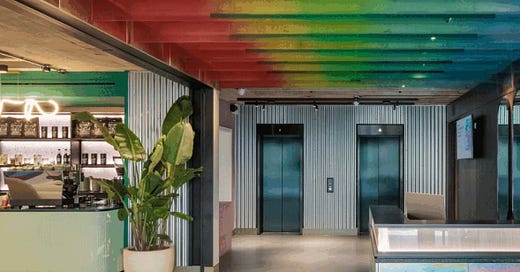Stop Pretending Your Startup Is Special: The Brutal Advantage of Being Ordinary
Your revolutionary idea has been done since 1973, but with worse typography
Every founder I meet tells me the same thing: "We're disrupting the industry with our unique approach to [insert business function that's existed for centuries]."
I smile politely while mentally translating: "We've added an app interface to a service that's been around since the Victorian era."
Most founders would rather ignore this reality: your startup probably isn't special. And pretending otherwise is actively harmful to your growth.
The Specialness Delusion
The startup ecosystem thrives on exceptionalism. Pitch decks that proclaim "revolutionary" approaches and "first-ever" solutions so routinely that these phrases have lost all meaning.
I fell into this trap with my first fundraising round. Our investor deck claimed we were "reimagining the workspace completely" when, in reality, no matter how many different colours of paint we use, an office is still an office (albeit, I most definitely maintain that offices are NOT all built equal).
This delusion of specialness is seductive because:
It feeds our egos (I'm not just solving a problem; I'm changing the world!)
It seems necessary for fundraising (VCs want unicorns, not workhorses!)
It temporarily masks our terror (If we're special, we can't fail... right?)
But this mindset creates three massive problems:
Problem 1: You Stop Learning From History
When you believe you're inventing something entirely new, you ignore the decades of accumulated wisdom about your industry.
While preparing for our Series B, I discovered that our "groundbreaking" customer acquisition strategy was essentially a digital version of techniques department stores had used since the 1950s. Had I acknowledged this sooner, I could have studied those historical models and avoided costly mistakes.
The most successful founders I know are voracious students of business history, constantly asking: "Who has solved a similar problem before, and what can I learn from them?"
Problem 2: You Misunderstand Your Value
True innovation rarely comes from inventing something from scratch. It comes from making existing solutions:
More accessible
More affordable
More convenient
More pleasant to use
Uber didn't invent paid transportation. They made it more convenient to arrange. Airbnb didn't invent hospitality. They made it more accessible to provide.
When you fixate on being special, you often miss your actual value proposition.
Problem 3: You Ignore Operational Excellence
The startups that survive long-term typically win on execution, not uniqueness. They do ordinary things with extraordinary consistency and quality.
My company's growth inflection point didn't come from our "innovative" features. It came when we got boring:
We improved response times for facilities and maintenance issues from 3 days to 3 hours
We productised our offering across our locations, which allowed us to perfect how we did it
We systematised our member onboarding to improve experience
None of this was revolutionary. All of it drove retention.
The Competitive Advantage of Ordinary
The counterintuitive truth: Embracing that you're not special is actually your path to success.
When you accept that you're building a better version of something that already exists:
You focus on customers, not concepts. Instead of trying to prove your brilliance, you obsess over solving real problems better than the existing alternatives.
You benchmark honestly. Your competition isn't just other startups; it's every solution your customer currently uses (including doing nothing).
You find differentiation in execution. The question becomes not "How are we unique?" but "How can we deliver this solution with more care, quality, and attention than anyone else?"
From Special to Successful
The most profitable company in my ether at the moment is a B2B software solution for an industry so boring I won't name it for fear of putting you to sleep. The founder never claimed to be disrupting anything. She simply said: "This existing process is painful and inefficient. I'm going to make it 30% better."
That company is now approaching £70M in annual revenue with profit margins that would make most venture-backed "disruptors" weep with envy.
Founders: Stop trying to be special. Start trying to be useful. Stop trying to be revolutionary. Start being incrementally, consistently better.
The world has enough visionaries. It's desperately short of competent executors.
What "ordinary" business function does your startup actually improve? Share in the comments—there's wisdom in honesty.



